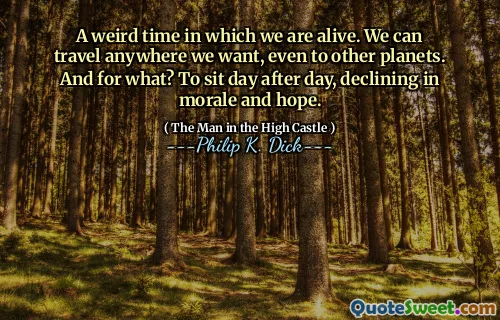The Expulsion from Paradise is eternal in its principal aspect: this makes it irrevocable, and our living in this world inevitable, but the eternal nature of the process has the effect that not only could we remain forever in Paradise, but that we are currently there, whether we know it or not.
The concept of expulsion from Paradise framed by Kafka suggests that once separated from a perfect state, we can never return. This aspect signifies an irreversible situation that binds humanity to the reality of existence in this world. As a result, our presence here is a certainty, unable to be undone or changed, but this also reflects an ongoing process of loss and yearning for a past ideal.
Moreover, Kafka introduces a paradox: while we are expelled from Paradise, there remains the notion that it is eternal. This indicates that Paradise is not entirely beyond reach; in fact, it implies that we could still inhabit this ideal state now, even if we are unaware of it. Thus, our understanding of existence is multifaceted, suggesting a simultaneous state of absence and presence that challenges our perceptions of reality and fulfillment.

